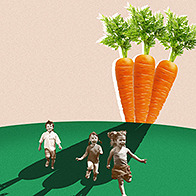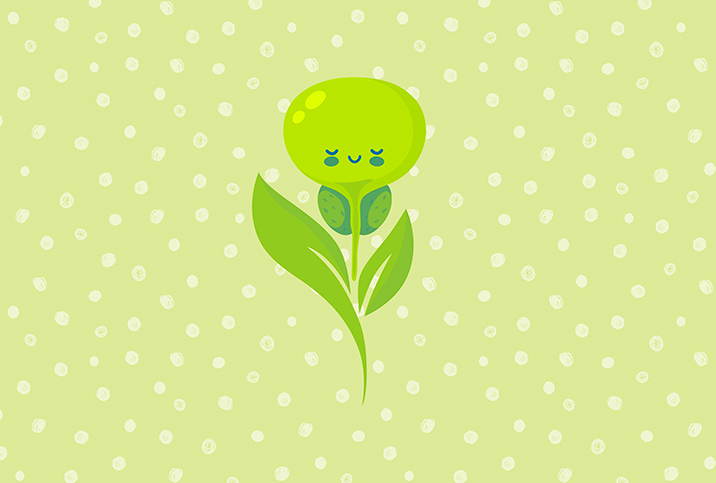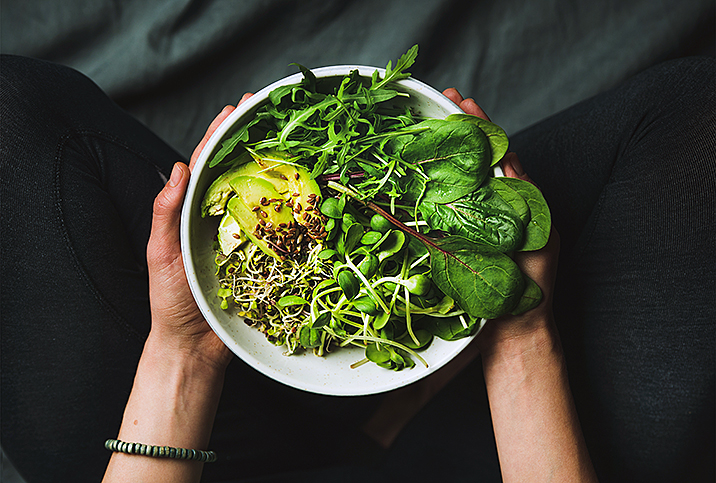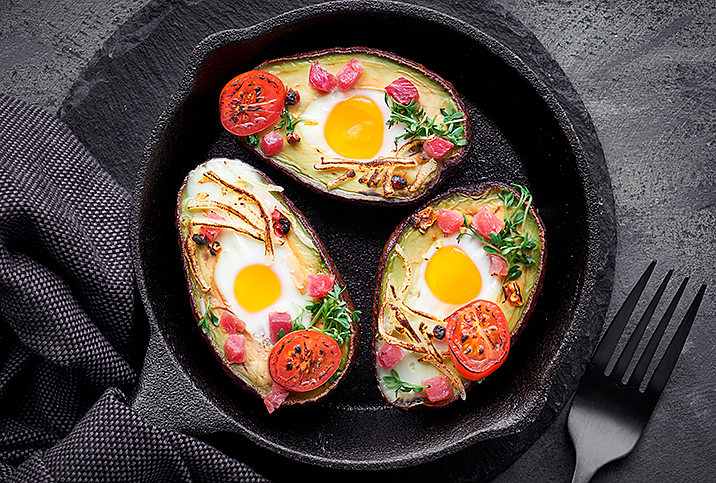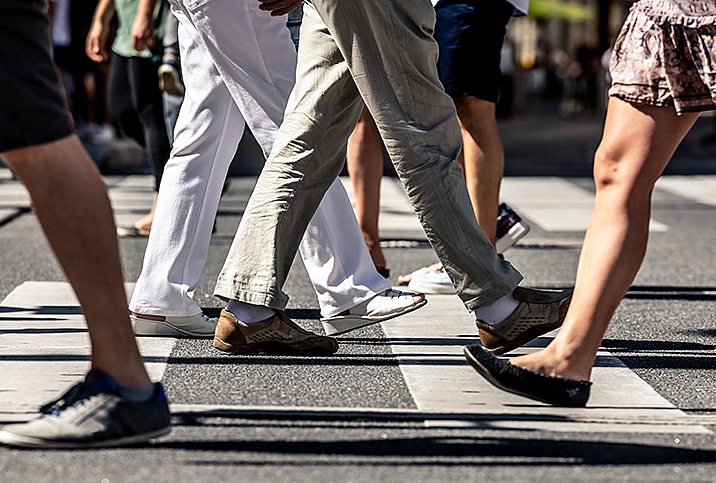Your Ancient Ancestors Are Why Diets Don't Work

Rachael Gareri first went on a diet at age 10 when she tried Weight Watchers with her mom. It was the first of many diet failures for Gareri, now in her mid-30s. Gareri said she's been on diets for so long that she can tell you exactly how many calories and carbs are in certain foods.
From the first diet, Gareri was taught her body wasn't OK. Diet culture reinforced the idea that she needed to fit a certain mold to earn people's respect.
"It's been really toxic," she said. "It made me feel like something I should be ashamed of and something that I needed to change."
Diets didn't work for Gareri because they weren't maintainable. For example, trying the ketogenic diet for a few months found her intensely craving crunchy carbs, such as tortilla chips—restricted on that diet. Gareri also found the Whole30 diet extremely restrictive, allowing only paleo foods in their rawest form, meaning she couldn't go eat with friends. Her quality of life began to revolve around what foods she could and couldn't eat.
"You can't live like that," she said.
About five years ago, Gareri, who founded the body-positive Colorado hiking group Fat Babes in the Wild, decided to quit dieting once and for all. Now, she focuses on intuitively listening to her body for hunger cues and staying present while she's eating.
On again, off again
Gareri is one of millions of people who have not had long-term success with dieting. Research suggests about 80 percent of people who lose weight will not maintain that weight loss for a year. On average, dieters regain more than half of what they lose within two years.
Diets are ineffective for physiological, neurochemical and psychological reasons, according to Elyse Resch, a nutrition therapist in Beverly Hills, California, and author of "Intuitive Eating: A Revolutionary Anti-Diet Approach."
Diets tend to not give us enough to eat, which lowers our blood sugar, Resch explained. We're driven to eat to get our blood sugar up so our brain can acquire energy. From a neurochemical aspect, the instinctual part of our brain senses we are not getting enough energy, so it sends out a chemical called neuropeptide Y, which prompts us to consume as many carbohydrates and calories as we can. Ultimately, we are driven by our unmet needs.
"If we can't have something, we feel deprived and that's what we go after," Resch said. "If you've been restrained in your diet, ultimately, you're going to break it. We actually don't like to be told what to do, so eventually, people just say to themselves that they just can't do this anymore—'Forget this, I'm not going to do what they're telling me.' And they go off and break the diet."
Hardwired to fail
The central reason diets don't work is due to evolutionary factors, according to Sandra Aamodt, Ph.D., a neuroscientist in California and author of "Why Diets Make Us Fat: The Unintended Consequences of Our Obsession With Weight Loss."
"We evolved as a species in situations where the lack of food was by far our biggest problem," Aamodt explained. "In hunter-gatherer days, there was no problem of excess food to be solved. It was all problems of not enough food."
For example, Aamodt described a person who is at a healthy weight, then loses weight. Their metabolism then changes, making them hungrier. They become more "fuel-efficient," burning fewer calories, if they're below the weight their brain thinks they should be, she noted. This would be a helpful adaptation for a famine situation because it would allow them to walk farther to find food and they'd be more motivated to eat.
"Your brain doesn't make any distinction based on what your starting weight was," Aamodt said. "All those things happen when you lose a bunch of weight, whether that means you're starving to death or whether that means you started out with 300 pounds and went down to 220; your brain reacts in exactly the same way."
Fast-forward to modernity, and people are now fighting against both a food environment where there's plenty of processed food available and an ancient brain response that burns less energy while continuing to keep them hungry.
"It's very hard," Aamodt said. "Everything is working against you."
Diets may lead to weight gain
Because diets restrict food intake, this leads to many people feeling anxious, depressed, overly focused on food, hungry and not feeling well physically, said Meghan Gillen, Ph.D., an associate professor of psychology at Penn State Abington who studies eating behaviors.
"That actually, paradoxically, can lead people to gain weight after going on a diet," she said.
People on a diet will go through a honeymoon phase where it's not difficult, they're losing weight and they're getting compliments from their friends, explained Shira Rosenbluth, a Los Angeles-based licensed clinical social worker and an expert on eating disorders.
"And in a few months, your biology kicks in, so it makes you start thinking about food all the time constantly," she said. "It makes you irritable and grouchy. Eventually, your biology programs you to eat as much as you can. The majority of people who go on diets end up gaining the weight back, if not becoming heavier than when they first started."
People tend to blame themselves when they "fall off the wagon," but Rosenbluth said that shouldn't be the case.
"If someone keeps falling off the wagon over and over again, maybe it's the wagon itself that's the problem," she added. "We look to dieting as this thing that is going to heal us and make us healthy. Not only is dieting emotionally harmful, but it can also be physically harmful."
What to do instead of dieting
Gillen recommended focusing on improving your health rather than weight loss. Look at the quality of the food you're consuming and incorporate more fruits, vegetables and healthy fats, she advised. At least 30 minutes of moderate physical activity every day and seven to eight hours of sleep each night are also essential.
"Sleep can play a big role in our eating habits and also the types of foods that we crave," Gillen explained. "While weight loss is a powerful goal for many people, if you approach it from the health angle, there's less pressure and it's not as goal-oriented."
Aamodt noted people who believe everybody should try their hardest to be thin agree it's much better to get regular exercise than not to get regular exercise, and it's much better to eat vegetables than not to eat vegetables.
"But what they don't say is that if you can do those things, your weight turns out to matter much, much less to your health than people assume," Aamodt said. "We're basically grabbing the problem from the wrong end. We're asking people to fix the very hardest thing to fix."
Regular exercise is Aamodt's top recommendation for healthy living. Even a small increase can make a big difference, especially in people who never exercise, adding that for many people, exercise helps them manage chronic health issues. Critically, the willpower required for working out is much lower than that for long-term, restrictive dieting.
"You can't run on willpower all day, every day," Aamodt said, adding we have a limited amount in the first place. "It's actually much easier to force yourself to exercise through willpower because exercise is a thing you do."
Putting on running shoes and going for a jog in the morning, for instance, requires you to exert some willpower, but then it's done, and you have the rest of the day when you don't need to think about it. On the other hand, if your aim is not eating, you'll never stop thinking about it.
"Being healthy is a much more achievable goal for most people than being thin," Aamodt explained.
The role of intuitive eating
Intuitive eating is a self-care framework based on guidelines—not rules—that help people get reconnected with their natural-born instincts. Resch, along with dietitian Evelyn Tribone, pioneered this evidence-based eating approach in 1995.
"Babies know when they're hungry and they know when they're full," Resch said. "You can't push more food on them. When they start to eat solid food, they know what they like, they know what they don't like."
As we get older, we get pulled away from instinct by diet culture and wellness industry messages of "good" and "bad" food, Resch noted.
People who practice intuitive eating have been shown to have better mental and physical health.
Resch referred to intuitive eating as "a dynamic interplay of instinct, emotion and thought," because it comes from the instinctual (reptilian), emotional (limbic) and cognitive (neocortex) parts of the brain. The instinctual part tells us when we're hungry and when we're full, the emotional part affects those signals, and the cognitive part can soothe our emotions and help us make better choices to feel good when eating.
Gillen supports the intuitive eating approach, noting it's been gaining popularity and is supported by research. People who practice intuitive eating have been shown to have better mental and physical health, she noted.
"Intuitive eating is just kind of getting back to basics and being more aware of what's going on in your body and the hunger signals to tell you, 'I'm hungry. I should eat,'" Gillen said.
She further emphasized the importance of removing expectations from eating.
"Don't say I'm just going to eat 'X' amount, because what if you're still hungry? Pay attention to that," Gillen said. "If you eat at a certain time, you don't always have to eat at that time every day, because what if you're not hungry at that time? Be more intuitive and just pay more attention to your body's signals."







